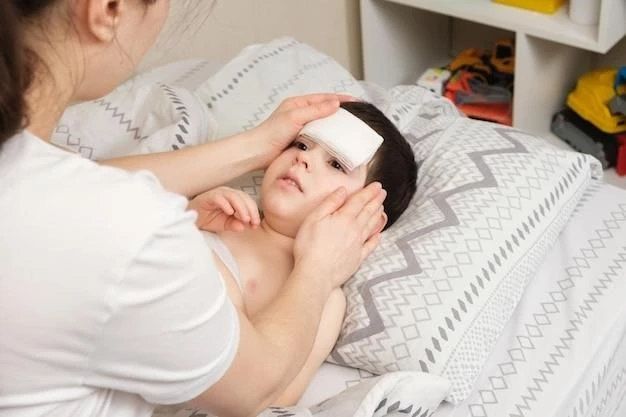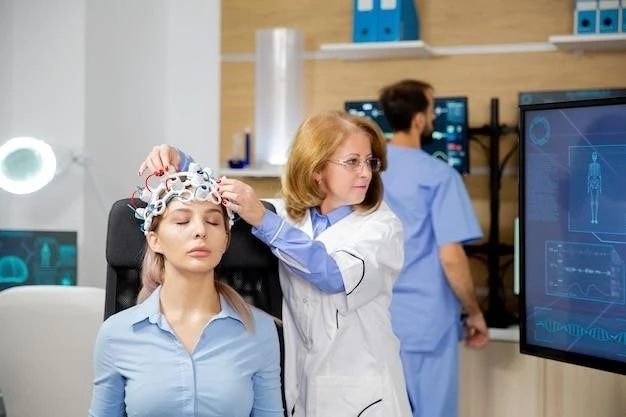Article Plan⁚ Disease ― Neuropathy Congenital Sensory Neurotrophic Keratitis
Overview of Neuropathy Congenital Sensory Neurotrophic Keratitis
Neuropathy Congenital Sensory Neurotrophic Keratitis is a condition characterized by damage to the trigeminal nerve that results in impaired corneal sensitivity, leading to corneal ulcers, melting, and perforation. This degenerative disease affects the cornea’s ability to heal properly due to decreased or absent corneal sensation.
Causes and Risk Factors
The primary cause of Neuropathy Congenital Sensory Neurotrophic Keratitis is damage to the trigeminal nerve, leading to impaired corneal sensitivity. This condition can result in corneal ulcers, melting, and perforation due to reduced or absent corneal sensation. Diseases like Hereditary Sensory Autonomic Neuropathy (HSAN) and conditions causing congenital insensitivity to pain with anhidrosis (CIPA) are linked to the development of neurotrophic keratitis. Specific triggers such as herpetic infections, trauma, and certain genetic factors can also contribute to the onset of this degenerative corneal disease.
Symptoms and Clinical Presentation
The hallmark of Neuropathy Congenital Sensory Neurotrophic Keratitis is a decrease or absence of corneal sensation, which can lead to various symptoms and clinical manifestations. Patients with this condition may experience impaired healing of the corneal epithelium, resulting in punctate epithelial erosions. Additionally, the development of corneal ulcers, stromal ulceration, and eventually perforation are common clinical presentations of this degenerative corneal disease.
Diagnosis of the Condition
Diagnosing Neuropathy Congenital Sensory Neurotrophic Keratitis typically involves a thorough clinical evaluation by an ophthalmologist. Special tests like corneal sensitivity assessments, corneal staining with dyes, and evaluation of ocular surface integrity may be conducted. Imaging studies, such as corneal topography and confocal microscopy, can provide valuable insights into the corneal structures affected by this degenerative disease. Additionally, genetic testing may be recommended in cases of suspected hereditary neuropathies associated with neurotrophic keratitis.
Treatment Options
Treating Neuropathy Congenital Sensory Neurotrophic Keratitis focuses on managing corneal damage and promoting healing. Common treatment approaches include the use of lubricating eye drops and ointments to keep the cornea moist, protect the eye, and aid in healing. In more severe cases, techniques like amniotic membrane transplantation or neurotrophic keratopathy surgeries may be considered to support corneal regeneration and reduce the risk of complications.
Importance of Early Detection and Intervention

Early detection of Neuropathy Congenital Sensory Neurotrophic Keratitis is crucial in preventing progression to severe corneal damage and potential vision loss. Timely intervention, such as the use of lubricating eye drops, protective measures, and surgical options when necessary, can help manage the condition effectively and improve outcomes. Regular monitoring and prompt treatment play a significant role in preserving corneal health and preventing complications associated with this degenerative corneal disease.
Research and Advancements in Managing the Disease
Ongoing research into Neuropathy Congenital Sensory Neurotrophic Keratitis focuses on understanding the role of trigeminal nerve damage in corneal sensitivity impairment and exploring novel treatment approaches. Advancements in corneal imaging techniques, genetic testing for associated hereditary neuropathies, and regenerative therapies offer promising avenues for managing this degenerative corneal disease. Collaborative efforts among researchers aim to enhance diagnostic accuracy and improve outcomes for individuals affected by neurotrophic keratitis.
Impact on Quality of Life
Neuropathy Congenital Sensory Neurotrophic Keratitis can have a profound impact on an individual’s quality of life due to the potential vision-threatening complications associated with this condition. The decreased corneal sensitivity and impaired healing can lead to persistent corneal epithelial defects, ulcers, and perforations, causing significant discomfort and visual disturbances. Managing the symptoms and preventing complications are essential in maintaining the quality of life for those affected by this degenerative corneal disease.
Case Studies and Personal Experiences
One Kashmiri family presented with three affected members exhibiting congenital sensory and autonomic neuropathy along with corneal opacification. The cases within the family, showing autosomal recessive inheritance, suggested a genetic component. Corneal histology indicated the presence of neurotrophic keratitis, emphasizing the complex interplay of hereditary conditions in influencing corneal health.
Hereditary Sensory Autonomic Neuropathy (HSAN) and its Connection to Neurotrophic Keratitis
Hereditary Sensory Autonomic Neuropathy (HSAN) encompasses a group of inherited disorders associated with sensory and autonomic dysfunction. When exploring the link between HSAN and neurotrophic keratitis, it becomes evident that certain subtypes of HSAN, such as HSAN type IV (congenital insensitivity to pain and anhidrosis), present a predisposition to conditions like neurotrophic keratitis. The intricate interplay between sensory and autonomic dysfunction in HSAN underscores the importance of understanding these conditions in the context of neurotrophic keratitis.
Neurotrophic Keratitis in Children with Sensory Neuropathy
Neurotrophic keratitis, a rare degenerative corneal disease characterized by diminished corneal sensory innervation, can manifest in children with hereditary sensory autonomic neuropathy type IV. This condition, resulting in partial or complete loss of corneal sensation, may lead to epithelial keratopathy, stromal ulceration, and potentially vision-threatening complications. Understanding the correlation between sensory neuropathy and neurotrophic keratitis is essential in managing ocular health in pediatric patients.
Challenges in Managing Neurotrophic Keratitis
Managing Neurotrophic Keratitis poses various challenges due to the complex nature of the condition. The impairment of corneal sensitivity and healing mechanisms requires a multidisciplinary approach involving ophthalmologists, neurologists, and genetic counselors. Additionally, the rarity of Hereditary Sensory Autonomic Neuropathy (HSAN) and its connection to neurotrophic keratitis adds a layer of complexity to treatment strategies. Finding effective interventions that address both corneal damage and underlying neuropathic causes remains a significant challenge in the management of this degenerative corneal disease.
Complications and Prognosis

Complications of Neuropathy Congenital Sensory Neurotrophic Keratitis can include persistent corneal epithelial defects, ulcers, stromal opacities, and even vision loss in severe cases. The prognosis varies based on the extent of corneal damage and the effectiveness of treatment interventions. Early detection and management are critical in improving outcomes and preventing long-term complications that may impact the overall prognosis for individuals affected by this degenerative corneal disease.
Prevention Strategies and Lifestyle Modifications
Implementing preventive measures and lifestyle modifications can play a crucial role in managing Neuropathy Congenital Sensory Neurotrophic Keratitis. Strategies such as protecting the eyes from trauma, avoiding irritants, maintaining good eye hygiene, and regular eye examinations can help prevent exacerbation of corneal damage. Lifestyle adjustments, including a balanced diet rich in essential nutrients, adequate hydration, and avoiding activities that pose a risk to ocular health, contribute to the overall well-being of individuals susceptible to this degenerative corneal disease.
Resources and Support for Individuals with Neuropathy Congenital Sensory Neurotrophic Keratitis
For individuals affected by Neuropathy Congenital Sensory Neurotrophic Keratitis, seeking resources and support is essential in managing the condition. Organizations specializing in corneal health, ophthalmic care centers, and support groups for individuals with sensory neuropathies can offer valuable assistance and information. Access to educational materials, counseling services, and expert guidance can empower individuals to navigate the challenges posed by this degenerative corneal disease.
